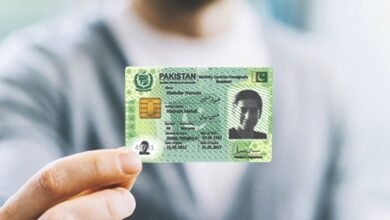Can Pakistan Compete Globally in AI Innovation?
AI innovation Can Pakistan Compete Globally? Explore Pakistan's AI potential and roadmap to becoming global tech leader in artificial intelligence.

AI innovation is reshaping economies worldwide, with nations investing heavily to secure their positions in this technological revolution. Pakistan, with its burgeoning tech talent and increasing digital adoption, stands at a crossroads can it leverage its potential to become a Compete Globally in AI? While the country boasts a young, tech-savvy population and a growing startup ecosystem, challenges such as limited funding, inadequate infrastructure, and brain drain pose significant barriers. However, with strategic investments, policy reforms, and stronger academia-industry collaboration, Pakistan could carve out a niche in the global AI landscape.
The rise of AI-focused startups, academic programs, and government initiatives like the National Center for Artificial Intelligence (NCAI) indicates promising momentum. Yet, compared to AI powerhouses like the U.S. and China, Pakistan’s progress remains nascent. To Compete Globally, the country must address critical gaps in research funding, data accessibility, and advanced computing resources. This Compete Globally explores Pakistan’s AI potential, the hurdles it faces, and the roadmap needed to transform its AI aspirations into reality.
Can Pakistan Compete Globally in AI Innovation?
The Current State of AI in Pakistan
Pakistan’s technology sector has seen remarkable growth over the past decade, with AI emerging as a key area of interest. Universities such as LUMS, NUST, and FAST are offering specialized AI and machine learning programs, producing skilled graduates. Additionally, local startups like Tazaang, Cognitiver, and Neurogaze are leveraging AI for healthcare, agriculture, and fintech solutions. The government has also shown interest through initiatives like DigiSkills and the National Center for Artificial Intelligence (NCAI), aiming to foster AI research and development. Despite these advancements, Pakistan’s AI ecosystem remains in its early stages compared to global leaders like the US, China, and the EU. Limited funding for research, a shortage of high-performance computing resources, and brain drain where top talent moves abroad for better opportunities hinder progress.
Challenges in Compete Globally
One of the biggest challenges Pakistan faces in AI innovation is insufficient investment. Unlike countries with billion-dollar AI budgets, Pakistan’s public and private sectors allocate minimal funds to AI research. This restricts the scalability of AI projects and limits access to cutting-edge technologies. Additionally, the lack of advanced infrastructure, such as supercomputers and cloud-based AI platforms, makes it difficult for researchers to Compete Globally with international counterparts. Another major issue is the absence of a cohesive national AI strategy. While countries like the UAE and India have clear roadmaps for AI adoption, Pakistan lacks a unified policy.
Opportunities for Growth
Despite these Compete Globally, Pakistan has several advantages that could propel its AI industry forward. The country has a young, tech-savvy population, with over 60% under the age of 30. This demographic dividend provides a vast talent pool for AI development. Additionally, the rise of freelance platforms like Upwork and Fiverr has enabled Pakistani developers to gain global exposure, bringing back valuable expertise. Another opportunity lies in sector-specific AI applications. Pakistan’s agriculture, healthcare, and textile industries could benefit immensely from AI-driven solutions. For instance, AI-powered crop monitoring can enhance agricultural productivity, while diagnostic tools can improve healthcare accessibility in rural areas.
Steps to Strengthen Pakistan’s AI Ecosystem
Establish a National AI Strategy
Pakistan needs a comprehensive, government-led National AI Policy that outlines clear goals for research, development, and implementation. This strategy should include funding allocations, regulatory frameworks, and public-private partnerships to ensure cohesive progress. Countries like the UAE and India have successfully implemented such roadmaps Pakistan must follow suit to avoid falling behind in the global AI race.
Increase Investment in AI Research & Development
Significant funding is required to boost AI innovation in Pakistan. The government should allocate dedicated budgets for AI research in universities and tech institutes, while private investors and venture capitalists must support AI startups through grants and incubator programs. International collaborations with tech giants (Google, NVIDIA, OpenAI) could also provide access to funding, Cloud computing resources, and cutting-edge AI tools.
Strengthen Academia-Industry Collaboration
Bridging the gap between universities and the tech industry is crucial. Universities should revise curricula to include applied AI courses, while companies should offer internships, joint research projects, and real-world problem-solving opportunities. Establishing AI research parks—where academia, startups, and corporations collaborate can accelerate innovation and commercialization.
Develop AI Infrastructure & High-Performance Computing
Without advanced computing power, Pakistan’s AI researchers cannot Compete Globally. The government and private sector must invest in supercomputing facilities, cloud AI platforms, and data centers. Partnerships with global tech firms could provide access to GPU clusters and AI development tools, enabling local talent to build sophisticated AI models.
Focus on Local Problem-Solving for Compete Globally Impact
Instead of only replicating Western AI solutions, Pakistan should develop AI applications tailored to local challenges such as precision agriculture, Urdu-language NLP, and disease diagnostics. Solving these issues will not only benefit Pakistan but also create exportable AI Innovation for similar emerging markets.
Retain & Attract AI Talent
Brain drain remains a major hurdle. To keep top AI professionals in the country, Pakistan must offer competitive salaries, research grants, and career growth opportunities. Incentives like tax breaks for AI Innovation, scholarships for AI students, and repatriation programs for expat experts can help retain and attract talent.
Build Ethical AI & Data Governance Frameworks
As AI Innovation grows, Pakistan must establish data privacy laws, ethical AI guidelines, and cybersecurity measures to prevent misuse. A regulatory body should oversee AI deployments in sensitive sectors like healthcare and finance to ensure transparency and accountability.
Promote AI Awareness & Digital Literacy
Many businesses and policymakers still lack awareness of AI’s potential. Nationwide AI literacy campaigns, workshops, and certification programs can educate entrepreneurs, government officials, and students on AI’s benefits and risks.
Encourage AI Startups & Entrepreneurship
The government should launch AI-focused startup incubators, provide tax incentives, and simplify regulations for AI-driven businesses. Success stories like Tazaang and Neurogaze prove that Pakistani AI startups can thrive given the right ecosystem.
Read More: AI in Pakistani Healthcare: Current Applications and Future Potential
Conclusion
AI innovation presents both a challenge and an opportunity for Pakistan’s technological future. While the country possesses a strong foundation of young talent, increasing digital literacy, and a growing startup culture, systemic barriers like limited funding, inadequate infrastructure, and policy gaps must be addressed to Compete Globally on the global stage. Strategic investments in research, stronger industry-academia collaboration, and a clear national AI strategy could propel Pakistan into the ranks of emerging AI Innovation. The journey will be demanding, but with sustained effort, Pakistan can transition from being an AI consumer to a meaningful contributor in the global AI revolution.
The window for Pakistan to establish itself in AI innovation is narrowing as other nations accelerate their advancements. However, by focusing on niche applications in agriculture, healthcare, and fintech sectors where Pakistan has unique insights the country can develop Compete Globally AI solutions. Government support, private sector involvement, and international partnerships will be critical in this transformation. If Pakistan acts decisively, it can not only solve Compete Globally but also emerge as a noteworthy player in shaping the future of AI Innovation. The time for action is now with the right policies and investments, Pakistan’s AI ambitions can become a reality.
FAQs
Does Pakistan have enough AI talent to Compete Globally?
Yes, Pakistan has a growing pool of skilled AI professionals, but brain drain and lack of advanced training opportunities remain key challenges that need addressing.
What industries in Pakistan can benefit most from AI Innovation?
Healthcare, agriculture, fintech, and manufacturing have the highest potential for AI-driven transformation in Pakistan’s context.
How can the Pakistani government support AI Innovation?
By creating a national AI strategy, increasing R&D funding, improving digital infrastructure, and fostering academia-industry partnerships.
Are Pakistani AI Innovation gaining Compete Globally recognition?
Some startups are making progress, but most need more investment, mentorship and global exposure to Compete Globally.
What’s the biggest obstacle for Pakistan’s AI Innovation?
The lack of consistent funding, advanced computing infrastructure, and a coordinated national approach are the primary barriers holding back Pakistan’s AI potential.











